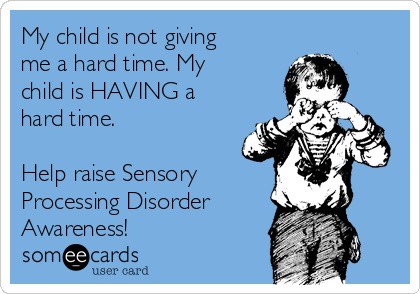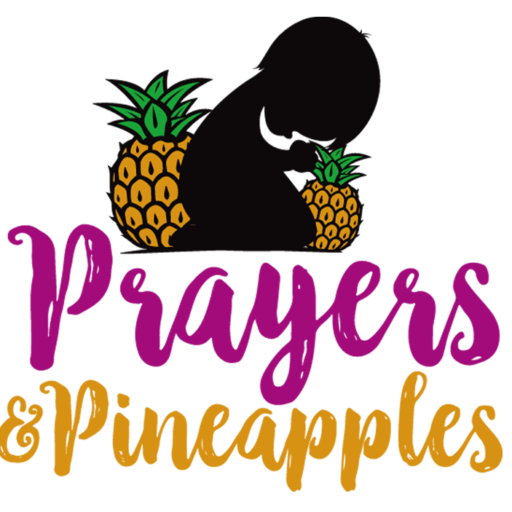
Sensory Processing Disorder: What’s In A Name?
Sensory Processing Disorder, or SPD for short, is also called sensory integration dysfunction sometimes. Anna Jean Ayres, an occupational therapist, defined the term Sensory Integration, citing it to “explain the relationship between deficits in interpreting sensation from the body and the environment and difficulties with academic or motor learning,’ and she was a pioneer in this field.
In elementary school we’re taught that there are 5 senses: Sight, Hearing, Touch, Smell, & Taste (vision, audition, tactile, olfactory, & taste)
But did you know there’s more!? Have you ever heard of Proprioception? Your sense of perception. Interoception? What’s going on in your body. Vestibular System? Sense of balance.
These are the other senses of our bodies. Sensory Processing Disorder might affect one sense, multiple senses, or all of them. When you have SPD you can be over-responsive or under-responsive to stimuli and ANY or your senses affected.
Basically the brain has trouble receiving and responding to (organizing) information that’s coming in through the senses when you have SPD. Just like no two people are alike – SPD doesn’t affect every one the same way either – so what bothers one person may not bother another. Some people (like my daughter) are going to be super overly sensitive to the things that are in their environment. If you read one of my earlier posts you’ll remember me mentioning how upset she’d get to loud noises, how overwhelming that was for her, well it’s because those sounds are painful to her. She can’t handle the wind sometimes, the way clothing falls on her skin feels painful, tags in her clothing feel like wasps stings, and if she’s not butt-naked then she’s usually got a sensory-friendly sleeper on (*and I mean, footed, long sleeved;she needs that pressure*).
All kids have moments. All kids are fussy and cry, scream, and are difficult at some point or another. All kids are finicky about clothes at some point, whether it’s scratchy clothes or tags, or just not wanting to wear any at all. All kids have issues with loud noises or too much stimulation or liking a little bit of routine. I’ve seen several kids who overreact to little “boo-boo’s” but who aren’t phased by a potential concussion/broken limb/etc. I get it. But don’t think about it too long, it’s when you have to live it – day in and day out – all day long that you’ll see how hard it is for the little person who is living it for themselves. These children are so sensitive to things, so emotionally sensitive to everything that’s going on, that it makes everything a challenge. The smallest, most mundane tasks of daily living, can be the hardest, most exhausting hardships that take everything out of that little person just for them to keep it together…..because all too often they can’t, they can’t hold it together. Everything can be an overwhelming experience for them (sights,smells, sounds, textures, flavors, all sensory input).
**********
Right now SPD isn’t recognized by the DSM-5 as a stand-alone diagnosis, there’s not enough research done yet, and they’re not sure if it’s truly a stand-alone disorder since SPD is typically seen in developmental conditions like those with developmental delays, learning disabilities, autism, ADHD, etc. I think this should change, mostly because I’ve heard of people with SPD having no other known developmental issues, but I do understand where confusion comes, as many symptoms that are seen in SPD are also the same symptoms seen along the autism spectrum.
“Then the LORD said to him, “Who has made man’s mouth? Who makes him mute, or deaf, or seeing, or blind? Is it not I, the LORD?”
Exodus 4:11
The following websites listed below I have referenced back to over the past few years to learn from and to try to help loved ones understand what my child is going through. I encourage you to click on these links to learn what you can, these are not affiliate links, they’re simply sites that have personally helped me and I hope they’ll help you too! There’s so much to learn about SPD and so much that would help you to understand it better but I’m not the person to do that. Regardless of what I know about it, and how well our professionals have explained it to me (and I mean ‘dumbed it down’ for me), I feel like I’d be doing a great injustice to you if I didn’t share the supportive sites that were the most help to me. Please check out the free resources below so you can learn at your own pace! (I don’t endorse any products that may be sold on any of these sites)
https://www.sensory-processing-disorder.com/
https://www.spdstar.org/basic/about-spd
https://blog.brainbalancecenters.com/2012/04/signs-and-symptoms-of-sensory-processing-disorder
